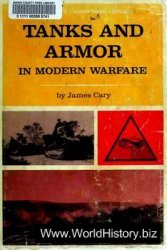Antitrust policy has gone through two distinct phases since the 1920s. In the first, beginning in the late 1930s, the Justice Department and the courts were hostile to mergers and business practices that appeared to limit competition. During this phase, the courts generally followed per se rules. For example, they usually held that control of a large share of the market was per se (intrinsically) illegal. It was no excuse that the firm had obtained a large share because it supplied a high-quality product or it had charged “fair” prices.
A second phase of antitrust policy began in the 1970s when the courts began to pay attention to critics of per se rules, who argued that these rules were often inconsistent with sound economic analysis and often did more harm than good. Many of the prominent critics, such as Robert Bork, Harold Demsetz, and Richard Posner, were associated with the famous Law and Economics program at the University of Chicago. The law-and-economics school stressed several points. First, large market shares are usually the result of efficient management or innovation. Breaking up such firms may create losses in efficiency that outweigh the benefits from greater competition and (possibly) lower prices. In the Alcoa decision (1945), Judge Learned Hand had viewed Alcoa’s practice of building new capacity well ahead of demand as a dangerous practice tending toward monopoly. The law-and-economics school viewed it as an example of foresight that should be congratulated. Second, even if an industry restructured by the courts could achieve high efficiency in the long run, high transition costs may be incurred. Third, splitting up monopolies or oligopolies may discourage other firms from undertaking product innovation and cost cutting. Fourth, competition can be effective even when there are few firms in an industry, because attempts to collude tend to break down quickly and because the number of potential entrants may be large. The law-and-economics movement had considerable impact on the actual practice of antitrust policy, a case against Microsoft that was eventually settled without a breakup of the firm being the major exception. Toward the end of the century, the law-and-economics school faced increasing criticism within academia. The critics contended that the assumption that consumers are rational utility-maximizing individuals, an assumption that the critics claimed underlay the ideas of the law-and-economics school, was unrealistic. The election of liberal Democrat, and lawyer, Barack Obama, suggested that more aggressive enforcement of the antitrust laws was in the offing, but as this is written there is little evidence of a major change in policy.




 World History
World History









